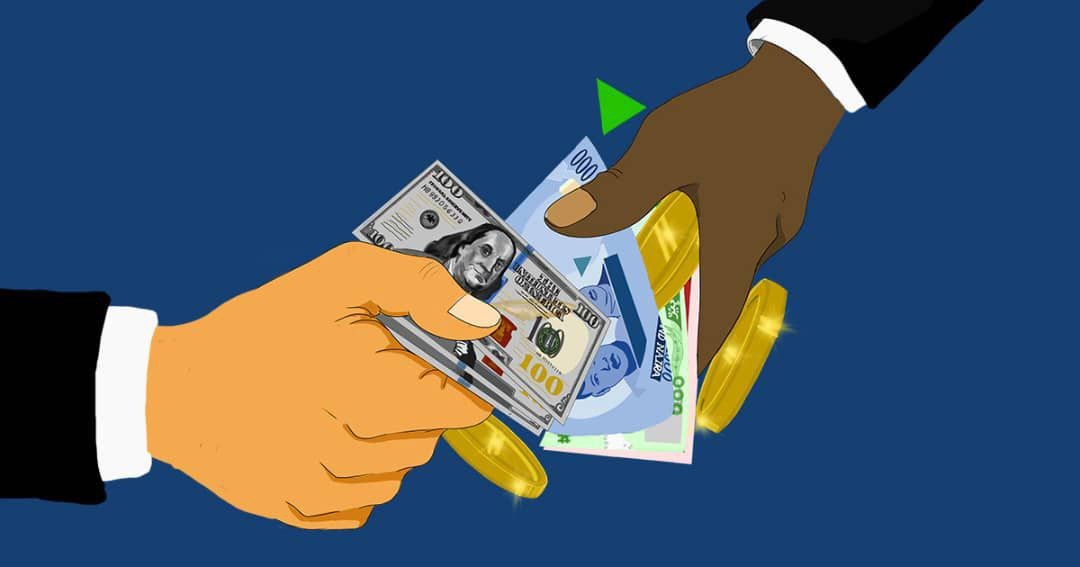The naira appreciated to N1,565/$1 in the official market on Wednesday, marking a 0.8% gain from Tuesday’s rate of N1,579/$1, according to data from the Central Bank of Nigeria (CBN).
This follows a notable five-day appreciation streak, during which the naira strengthened by 1.5% from N1,590/$1 recorded on May 28.
Intra-day trading on Wednesday saw the naira fluctuate between a high of N1,577/$1 and a low of N1,556/$1, settling at an average rate of N1,565/$1.
In the parallel market, the naira also gained ground, rising to N1,591/$1 from N1,595/$1 on Tuesday. This narrowing gap between the official and parallel rates signals improving market stability, a key factor for investor confidence.
The naira against other major currencies
The naira exchanged against the British pound at N2,163/£1 on Wednesday, maintaining its Tuesday’s rate of N2,163/£1. Against the euro, it traded at N1,825/€1 compared to N1,829/€1 the previous day. It also traded at N1,147/CAD1 from N1,146/CAD1 on Tuesday.
Foreign Exchange Reserves
Nigeria’s FX reserves experienced a slight decline, dropping from $37,840,453,726 to $37,834,354,884, a decrease of $6,098,842. While this dip is minimal, representing less than 0.02% of total reserves, it aligns with normal fluctuations and does not currently signal a threat to the CBN’s ability to defend the naira.
Bureau De Change (BDC) Recapitalization Challenges
The CBN’s recapitalization deadline for Bureau De Change (BDC) operators expired on Tuesday, raising concerns within the sector. In May 2024, the CBN raised capital requirements significantly:
- Tier 1 Licenses: Now N2 billion, up from N35 million.
- Tier 2 Licenses: Set at N500 million.
With fewer than 5% of licensed BDCs meeting these thresholds, the Association of Bureau De Change Operators of Nigeria (ABCON), led by President Dr. Aminu Gwadabe, has called for an extension and a reassessment of the requirements. Failure to adjust could force many BDCs out of business, potentially reducing FX market liquidity and competition, which might undermine the naira’s recent gains.
Monetary Policy Stance
At its 300th Monetary Policy Committee (MPC) meeting in Abuja, the CBN opted to maintain its tight monetary policy. The Monetary Policy Rate (MPR) was retained at 27.5%, the asymmetric corridor was kept at +500/-100 basis points around the MPR, the cash reserve ratio (CRR) was held at 50% for Deposit Money Banks and 16% for Merchant Banks, also the liquidity ratio remained unchanged at 30%.
What you should know
The naira’s recent appreciation is a positive development for Nigeria, reflecting effective monetary policy and improved market confidence. The 0.8% daily gain in the official market and the five-day 1.5% appreciation streak highlight a sustained upward trend.
The narrowing gap between official and parallel rates further strengthens this optimism, reducing arbitrage opportunities and enhancing economic stability.
The minor dip in FX reserves, while not alarming, will pose a risk for the naira if it becomes a trend. More pressing is the BDC recapitalization issue, as the drastic increase in capital requirements could consolidate the FX market but risks reducing liquidity if many operators shut down. This could counteract the naira’s gains by limiting access to foreign currency in the informal market, where many Nigerians and businesses operate.

